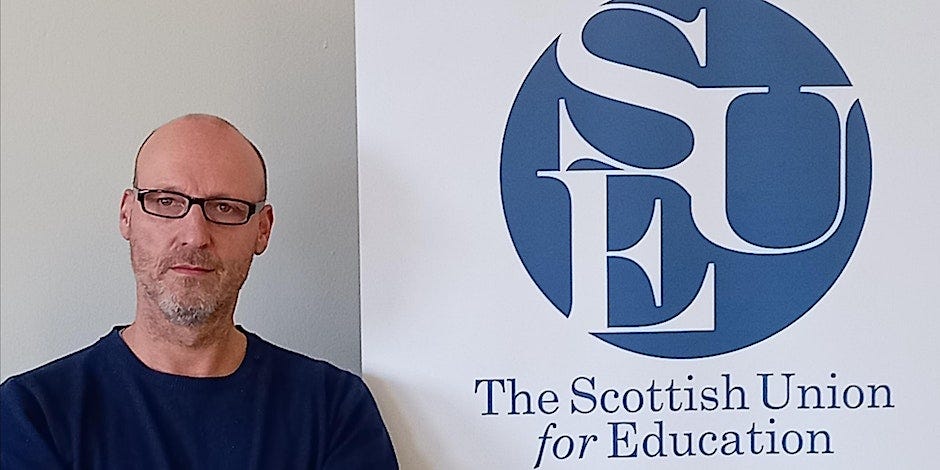Scotland's schools: where indoctrination trumps education
Ahead of the Scottish Union for Education conference in Glasgow on Saturday, Stuart Waiton lays out the parlous state of schools north of the border.
The Scottish Union for Education (SUE) is holding a major conference in Glasgow this coming Saturday, 9 March, to raise concerns about the collapsing standards in education and the growing indoctrination taking place in schools.
Here, the chair of SUE, Stuart Waiton explains what is happening in Scotland’s schools and why it is time to do something about it.
According to the latest PISA education survey, standards of education in Scotland are falling and falling fast. Limited though these types of surveys are, this sense that Scottish schools are failing their children is becoming widespread.
Whether it is the growing problem of low-level indiscipline in schools, or concerns raised by teachers about the paucity of the curriculum and the declining levels of literacy, or stories from parents about activist teachers, Scottish schools appear to have been transformed over the past two decades.
At SUE, we receive weekly reports from parents about issues they face with their schools. We have heard from nursery-school teachers about the use of books aimed at three- and four-year-olds that promote transgender ideology. Inappropriate and sexualised materials in primary schools have been identified, leading one parent to note that her headteacher recently explained, ‘You’ll be pleased to know we’ve taken the clitoris off the curriculum’.
A divisive anti-racist agenda has now been pushed into ‘every subject in the curriculum’, helping children to learn how they have ‘white privilege’ or how they as black children are oppressed by their white, privileged peers. Your kids may not get to do much maths, but they will be receiving anti-racist maths lessons, if they haven’t had them already!
Educational experts have been aware that the Curriculum for Excellence, set up in Scotland in 2010, was neither a curriculum nor about excellence. With no set guidelines of what knowledge children should be taught, this ‘skills’ and ‘wellbeing’ approach to schools has meant that the very nature of education has changed, become increasingly therapeutic, and overloaded with instrumental and political agendas that distract from the very purpose of schools.
If the proposals from the new Hayward Review are adopted, it will mean that this knowledge-lite form of education will be pushed into the later years of schools, too, potentially seeing the end of exams and the end of Higher qualifications. There would instead be a new diploma that is built around personal experiences and self-reflective ‘knowledge’ and a cross-disciplinary project, ideally developed around ‘correct’ issues, like social justice, immigration or global warming. How children are expected to develop a cross- or inter-disciplinary approach when they are not taught actual subjects and disciplines in the first place is anyone’s guess.
Writing for SUE, our parent support worker Kate Deeming has described much of the politicised education and campaigns in primary schools as a form of ‘disaster education’, where young children are burdened with adult political concerns about everything that is wrong with the world.
The Hayward Review may be rejected by the Scottish government. If it is, it will be the one good decision they have made regarding education. But with teacher trainers telling us that what it means to be a teacher is to be a social-justice activist, and when we find the Standard for Headteachers document likewise explaining that to be a headteacher means creating a ‘culture based on social justice’, we know that Scottish schools and the education system are in serious trouble.
The Scottish Union for Education was set up a year ago to help parents and teachers to challenge the philistine and activist nature of education. Scottish schools are being built around an ideology that has little or no interest in the great and important knowledge that has been developed over generations. Rather, it is past generations, including parents and grandparents, who are seen as a problem, as people who do not embody the ‘correct’ attitudes and ideas. Scottish schools are becoming places not of education but of indoctrination – this cannot be allowed to continue.
Stuart Waiton is chairperson of SUE. The Education not Indoctrination Conference takes place at the Tron Church, 25 Bath Street Glasgow on Saturday 9 March from 10am to 4.30pm. For details and tickets, visit Eventbrite.


